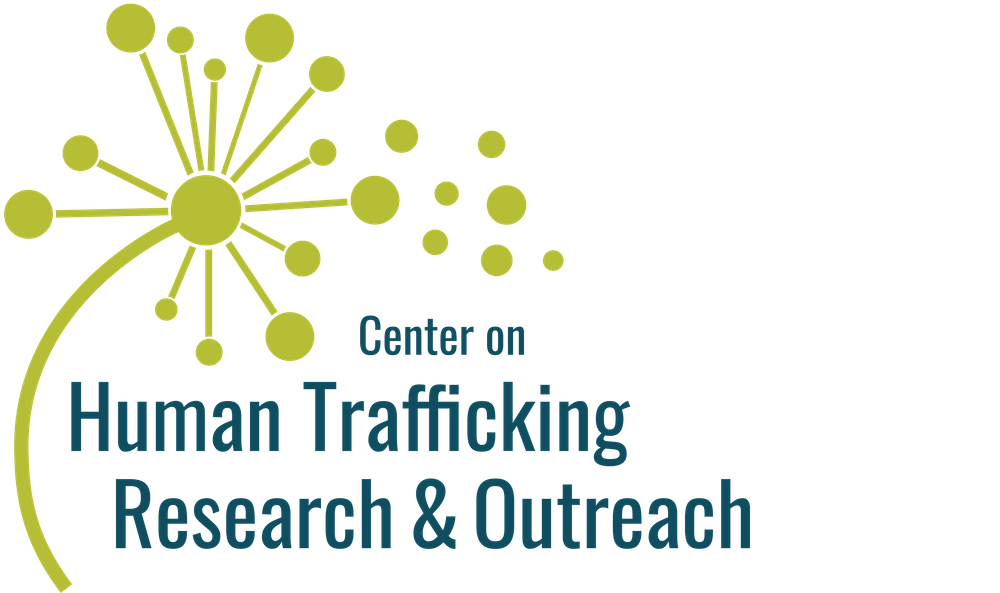Report: High Numbers of Children in Guinea Experience Trafficking
Tuesday, January 24, 2023

Extremely high numbers of children in Guinea experience child trafficking or child
labor, according to new research from the University of Georgia’s Center on Human
Trafficking Research & Outreach (CenHTRO).
Gathering data from two hotspot regions for child trafficking in the West African
country, Boké and Mamou, the report estimates that 63% of children (5 to 17 years
old) in Boké and 67% of children in Mamou have experienced child trafficking. Estimates
for child labor were 66% in Boké and 70% in Mamou.
Household surveys, key informant interviews, and focus group discussions contributed to the study, “Child Trafficking and Child Labor in Guinea: A Mixed-Methods Study,” funded by the U.S. Department of State Office to Monitor and Combat Trafficking in Persons. The report marks the first systematic research on the topic in Guinea and was conducted with research partners based in West Africa.
Domestic work, street vending, and agriculture were the most common forms of child
trafficking experienced by Guinean children, while survivors and parents interviewed
in the study described children experiencing multiple forms of trafficking. 
Survivors also reported that perpetrators used multiple forms of force, fraud, or coercion to maintain trafficking situations. Those forms included physical threats, false promises of educational opportunities, or withholding food.
The study cited street portering—carrying heavy loads over long distances—as the most common hazardous labor children experienced. Hazardous conditions included carrying heavy loads, exposure to extreme weather, and exposure to dust, fumes, or gasses.
“These results, though disconcerting, are not surprising at all to us,” said CenHTRO
Director David Okech, Professor of Social Work and principal investigator of the study.
“Guinea is one of the poorest countries in the world and poverty is a major risk factor
for both child trafficking and child labor. Poverty at the national and household
level renders children vulnerable to all sorts of exploitation.” 
Vulnerabilities
Household surveys indicated that male children had slightly higher odds of experiencing trafficking, especially in Mamou. Surveys also pointed to children between the ages of 12 and 17, children who were married, children who were contributing to household expenses, and children not enrolled in school as experiencing trafficking at higher rates. Especially vulnerable populations, according to key interviews, included informally fostered children, orphans, child migrants, and children over 14.
Gaps and Challenges
Key informants suggested that current legislation does not regulate the domestic labor sector, making it difficult for authorities to intervene in child trafficking situations. While Guinea’s penal code has been revised to address child trafficking related offenses, the lack of a national law, gaps in existing legislation, and insufficient punishments were reported in interviews. Respondents noted that current anti-trafficking resources were under-funded and therefore unsustainable and that greater awareness of how to report child trafficking was needed. Prosecution of traffickers was considered difficult by respondents due to corruption and interference. A lack of collaboration between agencies also posed challenges to an effective anti-trafficking response.
Recommendations
The report makes a series of recommendations to combat child trafficking and child labor in Guinea, informed by stakeholder input. Increased public awareness of current laws and focused development of youth centers and schools in rural areas are keys to preventing child trafficking. Training stakeholders in the child protection systems (magistrates, lawyers, police, etc.) and connecting survivors to agencies that provide employment, financial support, and emotional support will help protect survivors. Amending current policies to address children and encouraging survivor participation in the legal process will improve the prosecution of trafficking cases. Improving partnership among all sectors of society will also lead to improved outcomes.
“Centering survivor voices in strengthening interventions and harmonizing policy and
implementation between local and regional stakeholders were viewed by study participants
as critical for meaningfully reducing child trafficking prevalence," said CenHTRO
Research Scientist Anna Cody. “Stakeholder knowledge and passion for improving children's
well-being and access to opportunities in Guinea was evidenced in this report and
could be used as a roadmap for developing practical strategies to reduce and prevent
child trafficking through a survivor-centered, community-based approach.”
About Guinea
The U.S. Department of State ranked Guinea in the lowest tier, Tier 3, in its 2017 Trafficking in Persons Report, an annual assessment of global response by country to human trafficking. But the department recently placed the country on a slightly upgraded watch list due to the drafting and approval of a national action plan to combat trafficking.
In October 2021, a military coup led to the suspension of Guinea’s government and constitution. A military-led transitional organization currently runs the country and a three-year transition plan back to democracy is in place. Implications of this drastic change in the Guinean government have been far-reaching, resulting in a disruption in ties between Guinea and the international community. CenHTRO completed data collection for this study before the coup. Despite these changes, CenHTRO remains committed to disseminating this report in the hopes that its findings and recommendations will be useful for Guinean policymakers and community members who are currently actively working to rebuild a democratic Guinea.
Okech added, “Even though we were not able to translate our findings into policy and
programming interventions in Guinea due to circumstances beyond our control, both
the government of Guinea, INGOs, and NGOs in the country have the report at hand to
begin doing some work on the problem.”
Download a PDF of the report.
The activities described in this article were funded by a grant from the United States
Department of State. The opinions, findings, and conclusions stated herein are those
of the authors and do not necessarily reflect those of the United States Department
of State.
